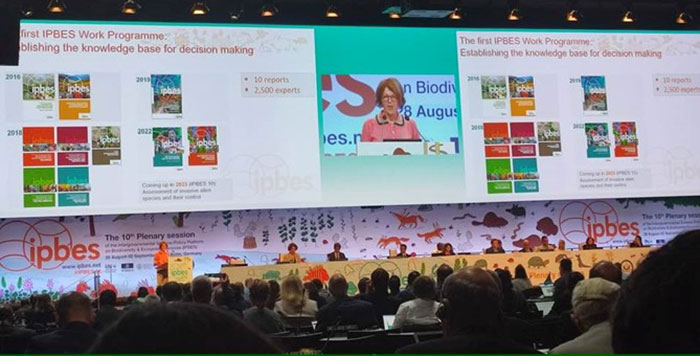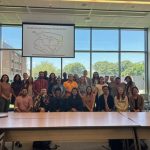
Professors and RCEI Affiliates Pamela McElwee and Rachael Shwom of the Department of Human Ecology have been awarded a National Science Foundation grant to plan a Center on Sustainability and Governance in the Anthropocene. The award was made from the new NSF program on Centers for Research and Innovation in Science, the Environment and Society (CRISES), which funds interdisciplinary research to create evidence-based solutions that strengthen human resilience, security and quality of life by addressing seemingly intractable challenges that confront society. Other Rutgers faculty involved in planning will include Julie Lockwood of the Institute of Earth Ocean and Atmospheric Sciences; Robert Kopp of the Office of Climate Action; Marjorie Kaplan of the Rutgers Climate Institute; Victoria Ramenzoni, Cara Cuite, Karen O’Neill, and Cymie Payne from the Department of Human Ecology, SEBS; Danielle Falzon from the Department of Sociology and Kevon Rhiney, Kevin St. Martin and Jesse Rodenbiker from the Department of Geography, SAS; and Andrea Restrepo-Mieth of the Bloustein School of Planning and Public Policy.
Effective governance, the process of making and enforcing decisions in societies at multiple scales, will be needed to address environmental crises like climate change, biodiversity loss, and unsustainable development that are accelerating rapidly due to human activity. The newly funded research team based at Rutgers will design a future Center on Sustainability and Governance in the Anthropocene (C-SAGA) that focuses on innovative interdisciplinary social science research that develops and assesses new forms of environmental governance. The future Center will be designed to learn from successful governance models and to launch new innovations that improve stakeholder participation, involve diverse knowledge systems, and help create more equitable outcomes for all through engaging with policymakers to design and implement transformative experiments.
“We are facing an interdependent and interconnected world in which environmental problems are far more complex than ever before. Scientists need to move beyond describing these complexities and engage in helping to design solutions that are both nimble and inclusive,” noted Dr. McElwee. Policy innovations are needed to address, among other issues, the interdependence of ecological and socio-economic systems; spatially and temporally distant and diffuse environmental impacts; novel conditions of deep uncertainty about many emerging problems; and the potential for irreversible tipping points, cascades, and feedbacks in the earth system. Dr. Shwom added, “Tackling these new challenges requires more than just better scientific knowledge. We need to understand how social networks, actors and policymakers can build solutions together that are grounded in how humans interact, behave, and problem-solve in real life.”
The year-long planning process centers on three case studies where Rutgers has notable research strengths: Fisheries and Marine Governance in the Face of Rapid Environmental Change, Safeguarding Island Food Systems Under a Changing Climate, and Piloting Equity-driven Nature-based Solutions to Biodiversity Loss and Invasive Species. Researchers at Rutgers University will work together with other scientists around the globe to explore possible solutions to these problems, compare governance challenges, and identify mechanisms to address them. The team will also undertake an assessment of sustainability governance education at Rutgers and beyond and assess student needs at both undergraduate and graduate levels. The future center will be designed around experiments in innovation, diffusion, and learning, including developing incubators for governance actors to exchange and scale up models, and training to improve capacities in governing across knowledges and scales.
If you are an undergraduate or graduate student, postdoc, or faculty interested in sustainability governance and participating in the planning process please contact Pam McElwee at pm473@sebs.rutgers.edu.
This article was published by the Rutgers Dept. of Human Ecology on September 9, 2023.







